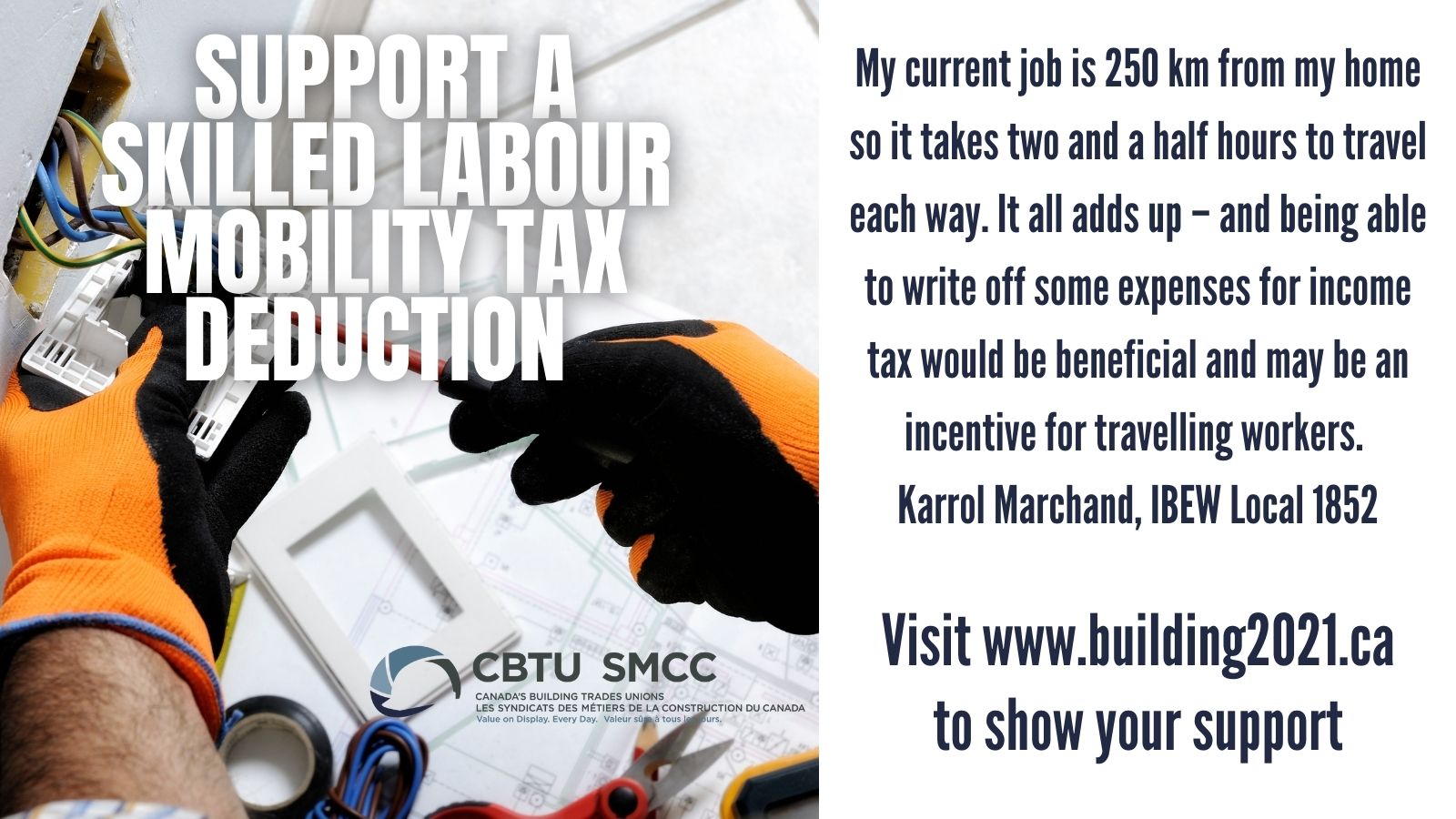Skilled trades workers have always had to travel for work – that’s why we’re called journeypeople. Sometimes, mobility creates a barrier for workers to go to where the work is.
Unlike many careers, jobs in the construction industry are cyclical. Projects arise, are built, and completed in different locations, at different times. This requires construction workers to travel far from home and bear out of pocket travel costs while they temporarily relocate for work, costing them thousands of dollars when these costs aren’t covered by the employer. When trying to support a family, the addition of temporary relocation costs can prove too burdensome.
Without access to workers, certain regions will face labour shortages while projects are taking place or employers may bring in temporary foreign workers, while skilled Canadian men and women are left without work.
Unfairness In The Income Tax Act

The Income Tax Act is currently an inequitable tax policy for those working in the skilled trades. Salespeople, professionals, and Canadians in other industries can receive a tax deduction for the cost of their travel, meals, and accommodations. The same option is denied to skilled trades workers who work on jobsites that are in different regions or provinces than their primary residence.
For example, someone selling rebar or conduit for the construction of a new building, can travel and deduct from income the cost of their travel, meals, accommodations, while the same option is unjustly denied to skilled workers who construct the buildings. Unlike in the United States where workers including those in the trades are able to deduct travel and accommodation expenses, Canada has an unfair policy that discourages essential travel for work. Those in the building trades should not be punished financially due to their choice of occupation. The Government of Canada has a responsibility to ensure a system of tax fairness is in place for all Canadians.
It Just Makes Fiscal Sense

Supports for labour mobility, like a Skilled Trades Workforce Mobility tax deduction, would remove the financial barrier for skilled trades workers to temporarily relocate or travel for work. This would address regional labour shortages, transition workers from utilizing programs like EI and, instead, contribute to the Canadian economy through tax revenues from their employment.
In March 2021, CBTU commissioned a financial projection which estimates that a Canada-wide implementation of a skilled trades workforce mobility tax deduction could save the Federal Government an estimated $347 million dollars annually through increased tax revenues and reduced reliance on EI and other government programs.
TAKE ACTION
We need Government support to address the long-standing issue of financial barriers to labour mobility through the implementation of a tax deduction for skilled trades workers or other financial supports.
It is time for the federal government to support workers who build our vital infrastructure. Regardless of political leaning, parties should make a commitment to address the long-standing issue of labour mobility in the skilled trades through financial incentives or allowing skilled trades workers to deduct travel costs from their income.
Write a letter to your political representative asking them to support labour mobility.



